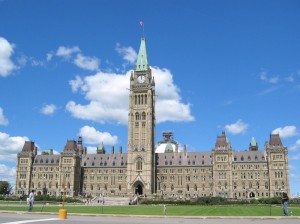A federal by-election will be held on November 26 as a result of current MP Denise Savoie resigning due to health complications. This has left a relatively short time for candidates to prepare for their chance to go to Ottawa and represent Victoria on a national scale.
To help students make sense of the by-election, Nexus caught up with candidates and spoke with them about a few key issues.

There are four candidates, one for each major party.
The Conservative candidate is Dale Gann (who did not respond to requests to be in this story), a Victorian who has spent his career building up Victoria’s high-tech industry. Gann is currently president of the University of Victoria’s Vancouver Island Technology Park and the Marine Technology Centre.
Representing the New Democratic Party (the Conservatives’ official opposition in Ottawa) is Murray Rankin. Rankin is a law professor at UVic, where he still teaches as an adjunct professor, and is recognized for his work in environmental and public law.
Fronting the Liberal party in Victoria is adjunct professor at UVic’s Peter Gustavson School of Business Paul Summerville. He has worked for several large investment banks throughout Canada, and runs a blog that provides discussion about public policy issues.
The Green Party of Canada has nominated Donald Galloway, a professor of law at UVic, as their candidate. Galloway focuses on immigration and citizenship law as well as tort law. Galloway has testified as an expert before the House of Commons and Senate committees, and is the founding president of the Association of Refugee and Forced Migration Studies.
While there are many issues to be discussed in this election, a key one regards raw sewage being pumped into the Juan de Fuca Strait.
Rankin says that he is open to learn more, but also points out that the law says we have to implement the sewage treatment plant, estimated to cost about $1.43 billion.
“As to whether it is necessaryÉ It has been ordered by the government, I’m not sure what people think should be done in the face of a government order,” says Rankin. “I don’t accept the premise that we can just ignore it.”
On the other hand, Summerville and Galloway are opposed to the idea of immediately building the plant. Galloway urges for further investigation, while Summerville is opposed to the idea altogether, citing that it goes against what scientists are saying and that it will use up all federal and provincial infrastructure money.
“The science doesn’t support the building of this plant, and therefore it is a gross waste of public funds to build this plant,” says Summerville. “If we have the science to support it, then it would be good for the environment, good for society, and good for the economy. But if the science doesn’t support it, then it is bad for the environment, bad for society, and bad for the economy.”
Another important issue in the Victoria by-election is the proposed pipeline set to be going through northern BC that would ship raw bitumen oil to China. All three of the candidates that we spoke to express strong opposition to this, for reasons such as environmental impact (both immediate and future) and out of respect for Aboriginal territory, which large amounts of the pipeline will be going through. However, one candidate, Galloway, also brought to light the issue of Canadian sovereignty and security that Canadians face if the Canada-China Trade Treaty, a motivating factor for the Conservatives to build the pipeline in the first place, goes through.
“We are selling it to state companies that are not driven by the market, but are driven by national political issues,” says Galloway. “The new investment treaty with China is a really important factor to focus on because it is a possibility that if the pipeline isn’t built that we may owe a huge damage award to China.”
